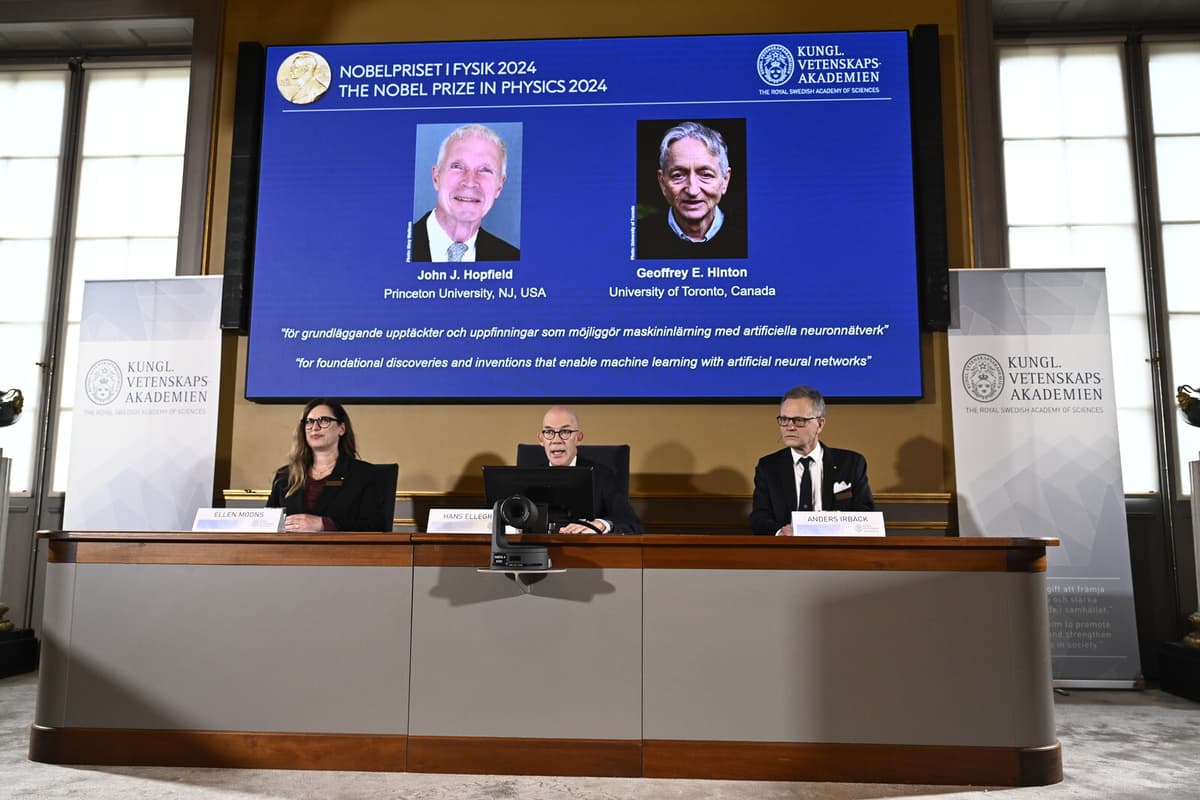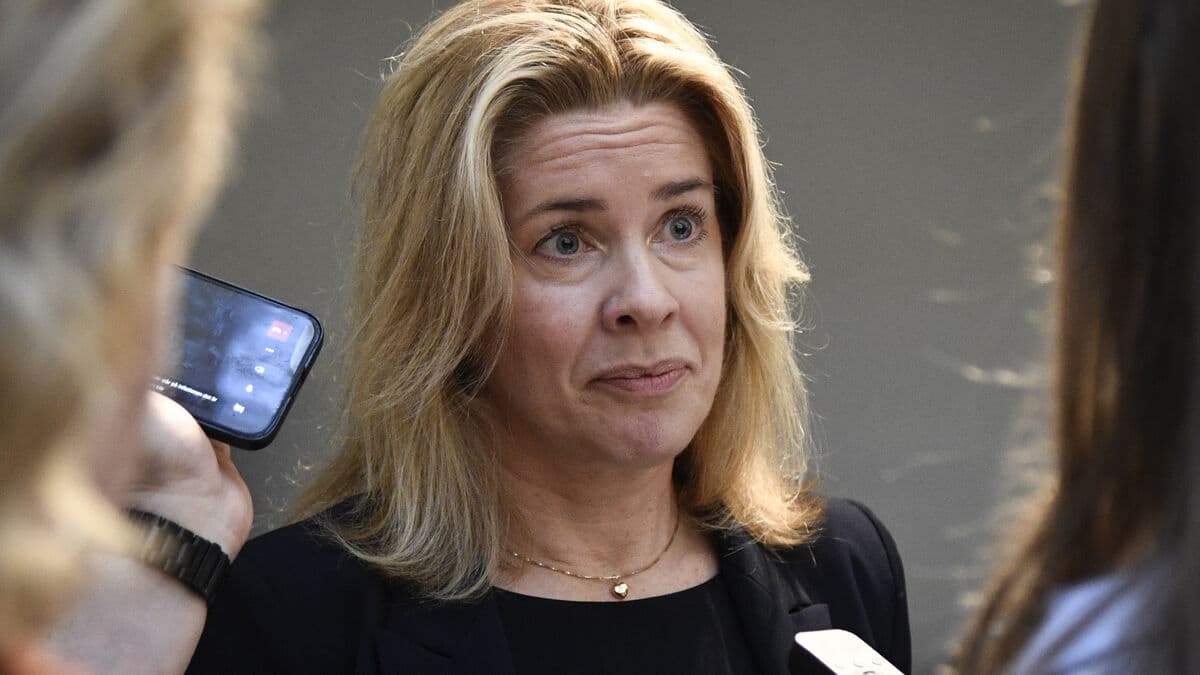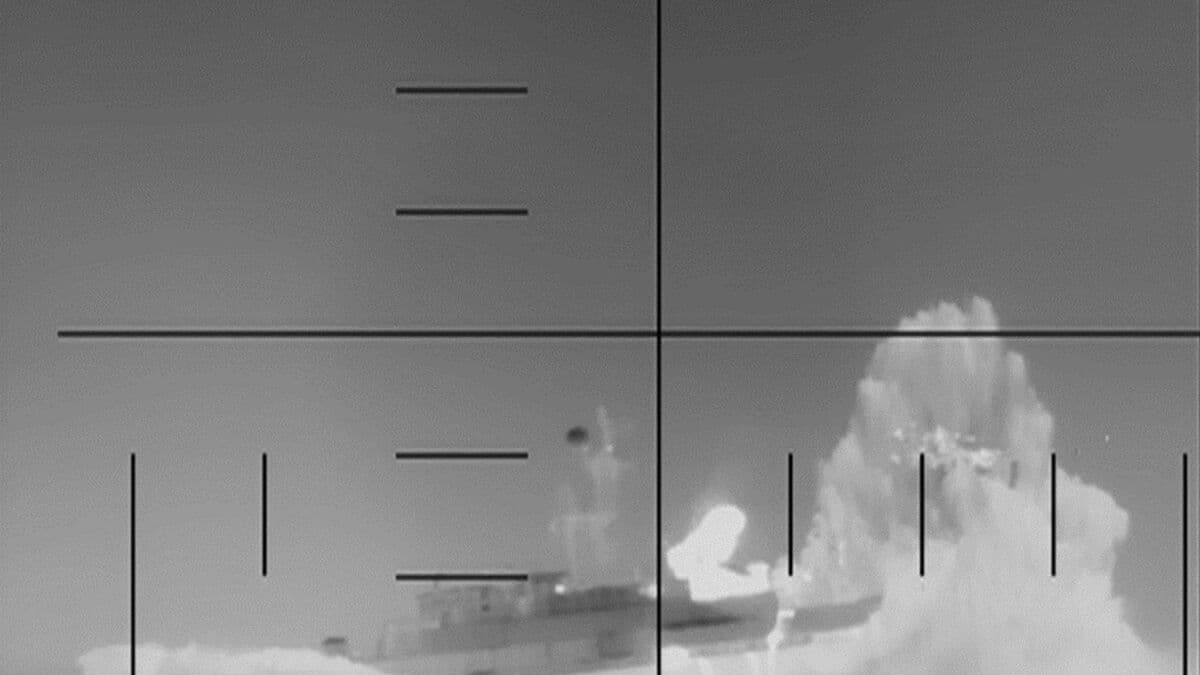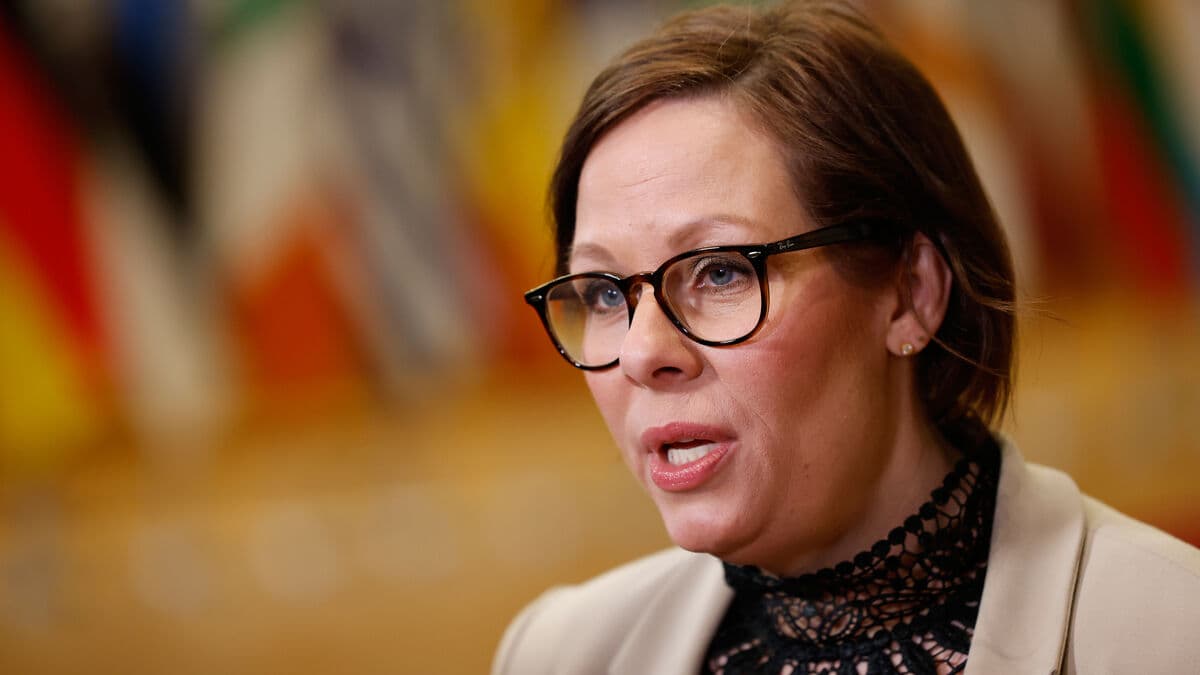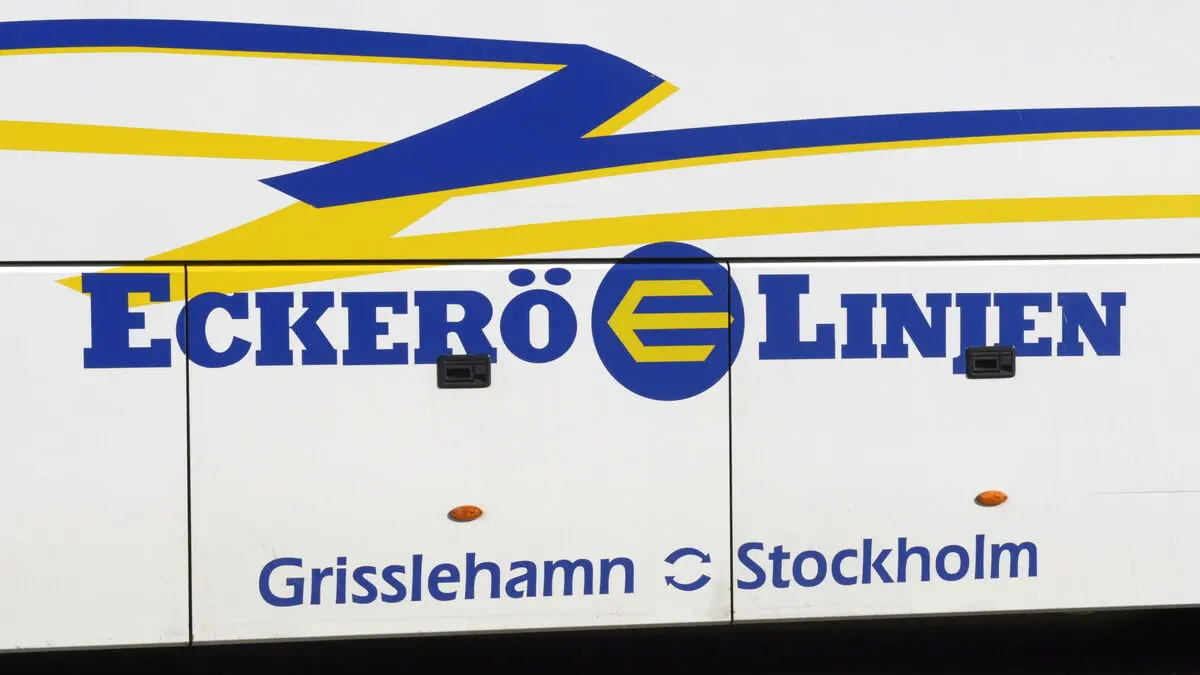Geoffrey Hinton, professor at the University of Toronto, has been called the godfather of AI technology. He was at least surprised by the news.
It was like a bolt from the blue. I'm at a cheap hotel in California without an internet connection, he says via link at the Royal Academy of Sciences' press conference.
His research is the basis for the current explosive development of machine learning, which he compares to the industrial revolution.
But instead of surpassing our physical strengths, it will surpass us intellectually. We have no experience of having things that are smarter than us, he says.
Warns of AI's consequences
Hinton regrets some discoveries – but would still do the same thing again. At the same time, he feels anxious about the risk of humans losing control over the systems.
We must be aware of the negative consequences and avoid things getting out of control, he says.
Asked what tool he himself uses in everyday life, he answers the text robot GPT4.
But I don't entirely trust it, because it can also hallucinate.
"Continued when everyone gave up"
Geoffrey Hinton invented a method that can independently find properties in data and thereby understand that a digital image – which is fundamentally colored pixels – for example, depicts a cat. His work builds on co-laureate John Hopfield's invention of a network that applies a method for storing and recreating patterns.
Danica Kragic, professor of computer science at the Royal Institute of Technology, says that the prize winners were inspired by physics' principles.
They were inspired by how the brain and synapses work. They thought "how could we digitalize this".
The weak computers, working memories, and difficulty of digitalizing information in the 1980s initially limited the usefulness of the technology. But Kragic doesn't think we would have seen the explosive development of AI tools without the prize winners.
Hinton continued working on these methods when everyone else gave up, she says.
The Royal Academy of Sciences' permanent secretary Hans Ellegren thinks it's fun to award something that people see the benefit of in their daily lives, when using AI services.
A small lesson we can learn is that this basic research is needed to get innovations and applications, he says.
The motivation from the Royal Academy of Sciences reads: "For fundamental discoveries and inventions that enable machine learning with artificial neural networks" and goes to John Hopfield and Geoffrey Hinton.
They began studying neural networks as early as the 1980s, which led to the machine learning explosion we've witnessed in recent years.
John Hopfield was born in 1933 in Chicago and is a professor at Princeton in New Jersey, USA.
Geoffrey Hinton was born in London in 1947 and is a professor at the University of Toronto, Canada.

